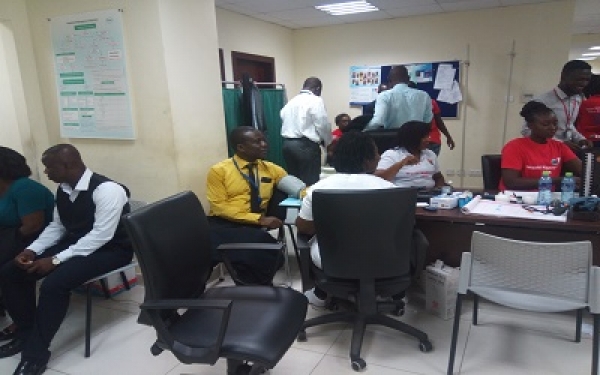He added that self-medications and frequent intake of painkillers can also expose people to all forms of kidney diseases.
Dr Boi’ma, who is a lecturer at the University of Ghana Medical School (UGMS), made this statement in an interview with The Finder at the commemoration of the 2018 World Kidney Day held in Accra yesterday.
This year’s celebration was held under the theme ‘Your kidney’s health – Your responsibility’.
“Currently, most people that are affected are the young productive persons in society between the ages of 20 and 50 years, and they are the people afflicted by these disease conditions,” he said.
He explained that in Ghana, prevalence rate of kidney-related diseases is estimated to be around 17 per cent, with hypertension as the number one cause of the kidney diseases.
He also mentioned diabetes, inflammation of the kidney and other hereditary factors as some of the known cause of kidney diseases.
“There are environmental exposures like toxic we expose ourselves to, including the herbs that we use unknowingly without knowing the effect on our body, and now the mixtures they do these days and the indiscriminate use of over-the-counter painkillers are known causes of kidney diseases in the country,” he added.
He said at the Korle Bu Teaching Hospital (KBTH), out of all medical admissions recorded annually, about 15 per cent of them are due to kidney diseases, adding that dialysis units in the country are available in just five regions, which should not be the case.
As part of activities to mark this year’s celebration, a health walk was organised by the Ghana Kidney Foundation (GKF) from Korle Bu to the Parliament House.
A free health screening was also done for Members of Parliament and staff of Parliament House at the Parliament Clinic, inside Job600.
Dr Boi’ma explained that parliament was strategically chosen to give the legislators firsthand information on the current trend of kidney diseases and come out with policies that will assist patients with kidney treatment in the country.
He said treatment of kidney diseases was quite expensive, and therefore advised Ghanaians to visit the hospital for regular check-up since early detection is less expensive to treat.
Ghanaian youth at risk of kidney-related diseases – Doctor
- Posted on
- Comment
 Ghanaian youth are at risk of getting kidney-related diseases due to excessive intake of alcohol, herbal medicines and other forms of concussions, according to Dr Vincent Boi’ma.
Ghanaian youth are at risk of getting kidney-related diseases due to excessive intake of alcohol, herbal medicines and other forms of concussions, according to Dr Vincent Boi’ma.
By Kenneth O. ADADE, Accra










 (Selorm) |
(Selorm) |  (Nana Kwesi)
(Nana Kwesi)